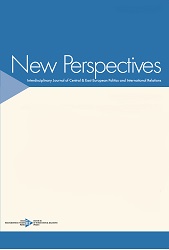Finding the Roots of Neo-traditionalist Populism in Poland: ‘Cultural Displacement’ and European Integration
Finding the Roots of Neo-traditionalist Populism in Poland: ‘Cultural Displacement’ and European Integration
Author(s): Francesco MelitoSubject(s): Political Philosophy, Government/Political systems, International relations/trade, EU-Accession / EU-DEvelopment
Published by: SAGE Publications Ltd
Keywords: Counter-hegemony; European integration; Polish politics; populism; traditionalism;
Summary/Abstract: This article investigates the roots of populism in Poland in its current traditionalist-conservative fashion. In contrast with the liberal hegemony and, more specifically, with its ‘true European values’, right-wing populists in Poland claim to speak in the name of those people who refuse this external system of values and who experienced a ‘cultural displacement’. The article examines whether the consensual process of European Union (EU) integration has created room for a populist moment. Particular emphasis is given to the importance of culture in the construction of an alternative neo-traditionalist project. While the post-structuralist literature on populism has mostly focused on Western Europe and socio-economic demands, the concept of neotraditionalism reveals the confrontation between two different blocs also in Central-Eastern Europe. The author analyses the neo-traditionalist discourse in Poland, most notably produced by the conservative party Prawo i Sprawiedliwos´c´ (PiS), as a counter-hegemonic project. Opposing mainstream EU values, PiS appealed to ‘ordinary Poles’ and adopted a traditionalist-conservative narrative. The article will show how the neglect of a neo-traditionalist world view by the European elite and the threat to identity posed by liberal and individualistic values have been exploited by right-wing populists to forge a new common sense.
- Issue Year: 29/2021
- Issue No: 1
- Page Range: 23-44
- Page Count: 22
- Language: English
- Content File-PDF

